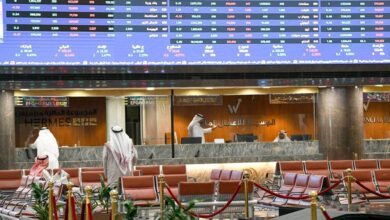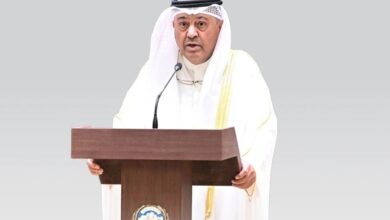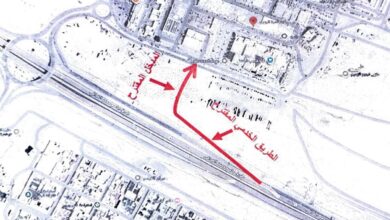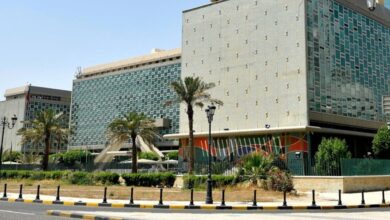Kuwait-UNEP sign 4 major environmental projects boosting sustainability and ecosystem protection

The Public Environment Authority and the United Nations Environment Programme’s (UNEP) Regional Office for West Asia in Kuwait signed today, Tuesday, 4 environmental projects to enhance cooperation in order to develop the State of Kuwait’s capabilities in the field of environmental protection and confronting climate change.
The Acting Director General of the Public Environment Authority, Eng. Samira Al-Kandari, said that signing of contracts with the UNEP, aims to enhance international and regional cooperation in implementing environmental policies and achieving strategic goals to protect the environment in Kuwait.
Al-Kandari stressed Kuwait’s commitment in protecting the environment and promoting sustainability, which is evident in the Environmental Protection Law No. 42 of 2014 and its amendments ‘which is the cornerstone of environmental efforts, alongside the ambitious, Kuwait Vision 2035, that aims to achieve sustainable development in various fields’.
Furthermore, he explained that one of the most important agreements is, preparing the National Environmental Strategy for the State of Kuwait 2035, in implementation of Articles 111 and 112 of the Environmental Law, which is a comprehensive roadmap to enhance environmental sustainability in Kuwait.
What is more is that Al-Kandari also stated that the strategy is based on main axes that aim to confront major environmental challenges such as; climate change by reducing gas emissions, supporting clean energy, combating desertification, protecting natural resources, and preventing and reducing pollution.
Elaborating further, he explained that the second agreement relates to implementing Articles 116 and 117 of the Environmental Law by preparing the national plan for environmental data management in Kuwait.
As an integrated environmental data system will be developed that is linked to governmental and private entities to ensure the provision of an accurate database on the environmental situation in the country, which enhances sustainable decision-making and effective resource management.
Similarly, Al-Kandari stated that the preparation of the National Strategy for Integrated Waste Management 2040, was completed last year in cooperation with the German Institute (Franhofer), adding that the Authority is currently in the process of developing a system to launch and implement the National Strategy for Integrated Waste Management in Kuwait by 2040.
Adding more significance to this initiative, Al-Kandari stressed the Authority’s efforts to develop sustainable waste management systems by improving recycling processes and reducing solid and liquid waste in a way that preserves the environment from pollution and enhances sustainability by adopting the concepts of the circular economy or green economy.
Al-Kandari stated that the Authority is about to sign an agreement to develop the national strategic plan to combat desertification in Kuwait, which is in line with the requirements of the United Nations Convention to Combat Desertification and taking into account national circumstances, and to establish an executive framework for the strategy by enriching the database, using best practices, and developing institutional capacities to address desertification.
This agreement would also focus on restoring degraded lands and improving sustainable agriculture, to enhance vegetation cover and reduce environmental impacts that pose a major challenge to the country and the region.
Additionally, Al-Kandari explained that the Authority will implement these strategies in cooperation with all government and private sectors, research and academic institutions, and civil society, in line with the state’s development plan and the government’s work program.
Whereas, the UNEP Representative and Regional Director for West Asia, Sami Dimassi, said in a similar speech that this cooperation expresses the commitment in developing strategies and action plans, that keep pace with immediate needs and meet future ambitions in order to build a sustainable future, which enhances environmental protection.
Dimassi stressed that signing the four projects is a translation of the shared vision between the two parties and an embodiment of the collective commitment towards a better environment.
He explained that the projects are expected to be implemented within the next two years. As the first of them deals with the project of launching and implementing the National Environmental Strategy of the State of Kuwait 2035, which aims to enhance partnerships between the public and private sectors and raise the efficiency of strategic performance in the field of environmental protection through a comprehensive national plan to be a reference for directing environmental policies according to the priorities specified in the State of the Environment Report.
Adding further, Dimassi mentioned that the second project is concerned with developing a monitoring system for the launch and implementation of the national strategy for integrated waste management in Kuwait, and developing national performance indicators to evaluate and monitor progress in waste management, resource conservation and environmental protection in the long term, by creating an effective system and an advanced digital dashboard in light of the economic and social development witnessed by the country.
He stated that the third project is concerned with developing the national strategic plan to combat desertification, land degradation and drought in Kuwait in order to enhance the environmental database, develop institutional and national capacities, and apply the best international practices in combating desertification in line with the strategy of the United Nations Convention to Combat Desertification for the period from 2018 to 2030, and with Kuwait Vision 2035, and its development plan, taking into account national conditions, especially recurring sand and dust storms.
Elaborating further, Dimassi added that the latest project is concerned with developing the national plan for environmental data management in Kuwait, which is in line with the provisions of the Environmental Protection Law 116-117-118; in order to develop an integrated system that ensures the exchange of data between government agencies in a regular and reliable manner, which facilitates electronic linking between institutions and enhances transparency in environmental decision-making through a national portal available to all.
In conclusion, Dimassi stressed that the effective cooperation and strategy between the two sides have made progress in enhancing environmental work and achieving sustainable development, embodied by the launch of the State of the Environment Report, and Kuwait’s plan for sustainable consumption and production, in addition to the Chemicals Management Program and the preparation of the third national report on climate change.















